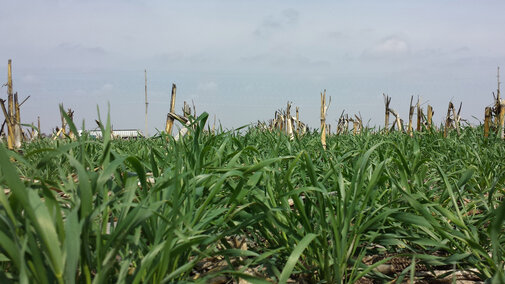Despite the crippling rainfall that significantly delayed planting across much of the country in 2019, more than 90% of farmers participating in a national cover crop survey reported that cover crops allowed them to plant earlier or at the same time as non-cover-cropped fields. Among those who had "planted green," seeding cash crops into growing cover crops, 54% said the practice helped them plant earlier than on other fields.
This insight is among several from the 2019-2020 National Cover Crop Survey, conducted by the non-profit Conservation Technology Information Center (CTIC), with financial support from the Sustainable Agriculture Research and Education (SARE) program and the American Seed Trade Association (ASTA). These organizations have worked together on several past national cover crop surveys, with the first survey dating back to the 2012 crop year.
The most recent survey included perspectives from 1,172 farmers representing every state and included a detailed exploration of “planting green” as well as crop insurance use among cover croppers.
“Farmers are using cover crops for a variety of reasons and many have tried new approaches to cover cropping,” Smith said. "This year's survey also indicated that some of the concerns that many growers have had about the effects of cover crops on planting dates in a wet year turned out not to be true—in fact, in many cases, cover crops helped farmers plant earlier in the very wet spring of 2019."
According to Rob Myers, Regional Director of Extension Programs for North Central SARE, “many farmers are finding that cover crops improve the resiliency of their soil, and the longer they use cover crops, the greater the yield increases and cost savings that are reported by producers.”
The full report includes discussions the relationship of cover crop use on yields, saving on farm costs, planting green, the benefits to horticulture producers and more. Complete details, as well as links to the full report, are available free online.

